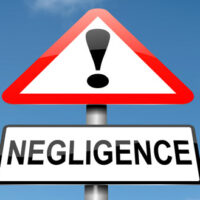Proving Negligence in a Personal Injury Case

Florida residents who are injured in accidents through no fault of their own must still prove a certain set of facts before they will be eligible for monetary damages. Unfortunately, proving that someone was negligent or reckless is often more difficult than most people realize, so if you were recently injured in an accident in Florida and have questions about the elements of a negligence claim, please contact one of our experienced Fort Lauderdale personal injury lawyers today for assistance.
Elements of a Negligence Claim
Florida’s negligence laws require that plaintiffs seeking monetary compensation for accident-related injuries prove four key sets of facts, including that:
- The defendant had a legal obligation to act with reasonable care, so as not to cause a risk of harm to others;
- The defendant, whether an individual or an entity, breached that duty;
- The defendant’s breach was the cause of their injuries; and
- They suffered losses as a result of their injuries.
Even plaintiffs who can successfully prove these elements could have their compensation reduced if they were partly at fault for the accident in question. This is because Florida is a comparative fault state, which means that if a plaintiff’s actions contributed to an accident, his or her monetary award will be reduced in an amount that is equal to his or her degree of negligence in causing the accident.
Monetary Damages
Damages are a way of reimbursing individuals who are harmed by someone else’s negligence. As long as a person can prove the aforementioned elements of negligence, he or she could be entitled to compensation for accident-related losses, including:
- Past and future medical expenses, including the cost of surgery, outpatient care, therapy, rehabilitation, and medications;
- Lost wages, if the plaintiff’s injuries are so severe that he or she is prevented from working;
- Permanent disfigurement, scarring, or disability caused by the accident;
- Loss of future income due to disability;
- Property damage sustained during the accident;
- The pain and suffering that the injured party was forced to endure as a result of the accident;
- Emotional distress suffered by the relatives or loved one’s of the injured party because of the accident;
- Diminished quality of life; and
- Losses based on how a victim’s injuries affect his or her personal relationships with a spouse, children, or other loved ones.
The damages award that an injured party could receive after filing a successful negligence claim in Florida depends on his or her specific circumstances. Generally, however, the more severe or disabling an injury is and the more reckless a defendant’s actions, the more a plaintiff can expect to collect in damages.
Contact a Florida Negligence Lawyer
To learn more about the elements of negligence in Florida and related legal issues, please contact Boone & Davis today. A member of our legal team can help you set up a free consultation where you can discuss the details of your case with an experienced Florida personal injury lawyer. You can reach our office by calling 954-566-9919 or by submitting one of our online contact forms.
https://www.booneanddavislaw.com/complications-from-broken-ribs/
